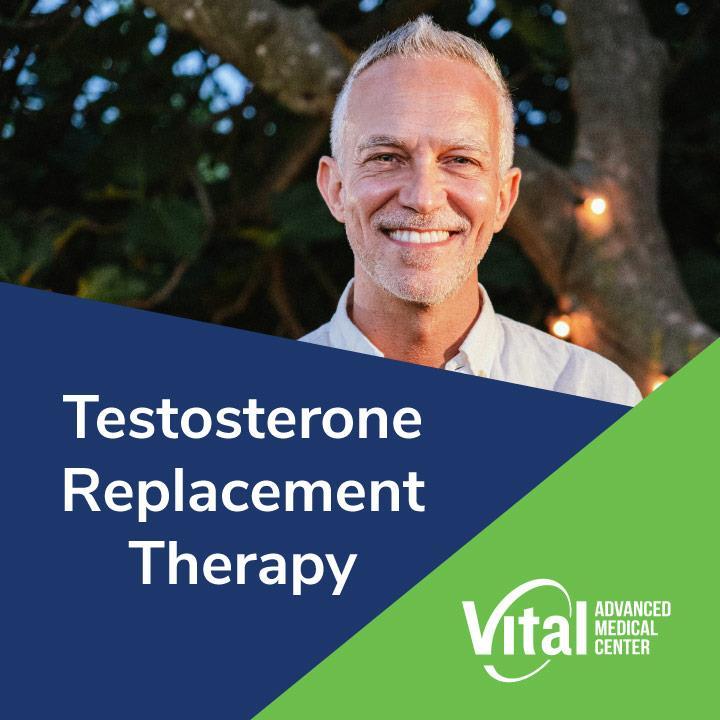TREATMENTS FOR LOW T

Low testosterone (Low T) can be treated through several approaches, depending on the underlying cause and individual health factors. At our center for Low T treatment in Tampa, we use Testosterone Replacement Therapy (TRT) to help our patients. However, there are actions that each male can take to make sure their testosterone levels do not decrease as they age. Below are some of the actions you can take to raise your testosterone levels.
Making lifestyle changes to diet, exercise, and sleep patterns can have a positive impact on testosterone levels. Regular physical activity, particularly strength training and high-intensity interval training (HIIT), can boost testosterone. This combined with a healthy diet can work wonders for your testosterone levels. Consuming a balanced diet with enough protein, healthy fats, and vitamins (such as vitamin D and zinc) can support healthy testosterone levels.
Poor sleep can lead to lower testosterone, so aim for 7-9 hours of sleep per night. Getting more sleep can raise testosterone levels because sleep plays a crucial role in hormone production, including testosterone. Testosterone is primarily produced during sleep, particularly during the deeper stages of sleep, such as slow-wave sleep (SWS) and rapid eye movement (REM) sleep. These stages are most prominent in the first half of the night. During deep sleep, the body is in a restorative state, and hormone production, including testosterone, is at its peak.
Chronic stress raises cortisol, a hormone that can suppress testosterone production, making stress management very important for men. Practicing relaxation techniques like meditation can help.
However, if low testosterone is due to another medical condition, such as obesity, diabetes, or pituitary problems, treating the underlying cause may help normalize testosterone levels. For example, if a man is obese, losing excess weight can help improve testosterone levels. If a man has Diabetes or metabolic syndrome, proper management of these conditions may help reduce their impact on testosterone.
If your testosterone levels are so low that none of the above help to raise or stabilize it, then Testosterone Replacement Therapy (TRT) is the most common treatment for low testosterone. There are different methods of administering testosterone such as:
Injections: Testosterone can be injected into the muscle, typically every 1-2 weeks.
Topical Gels or Patches: These are applied to the skin, where the hormone is absorbed.
Implants: Small pellets containing testosterone are implanted under the skin and release the hormone over time.
Oral Medications: Though less common due to liver concerns, testosterone can sometimes be taken orally.
Nasal Gel: This gel is applied inside the nostrils.
Before starting any treatment, it's important to consult a healthcare provider to determine the cause of low testosterone and the best approach for your specific situation. Regular monitoring of testosterone levels during treatment is also essential.
Our certified providers at Vital Advanced Medical Center have helped many men suffering from low testosterone levels and the associated symptoms such as erectile dysfunction, low libido, fatigue, lack of zest in life, and more with low T treatment in Tampa. If you are a male suffering with symptoms of low T, have questions or just would like to get your testosterone levels tested, then a consultation may be in order.
